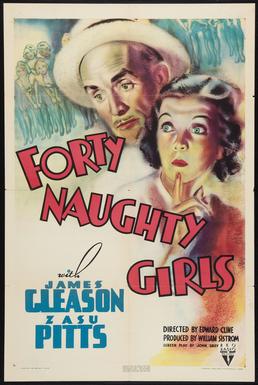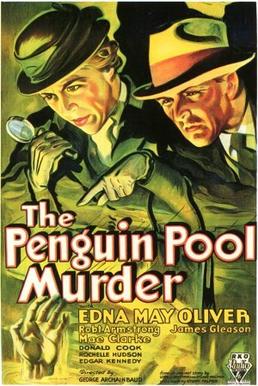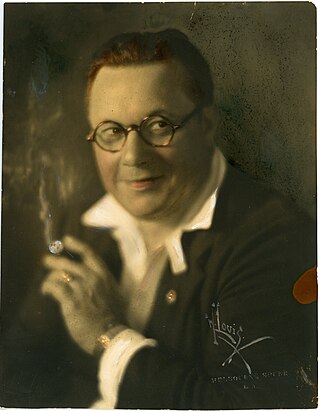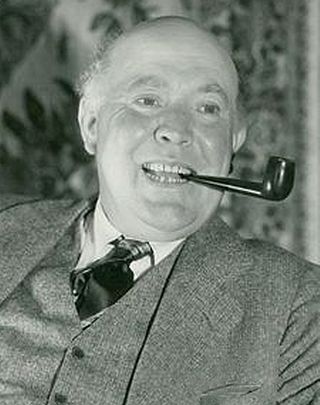James Austin Gleason was an American actor, playwright and screenwriter born in New York City. Gleason often portrayed "tough-talking, world-weary guys with a secret heart-of-gold."
Gleason was born in New York City, the son of Mina (née Crolius) and William L. Gleason. Coming from theatrical stock, as a schoolboy he made stage appearances while on holiday. He began earning his living at the age of thirteen, being a messenger boy, printer's devil, assistant in an electrical store and a lift boy. He enlisted in the United States Army at age 16 and served three years in the Philippines. On discharge, he began his stage career, later taking it up professionally. He played in London for two years and following his return to the United States, he began in films by writing dialogue for comedies. He wrote a number of plays, several of which were performed on Broadway. He also acted on Broadway, including in a couple of his own plays. When World War I broke out, Gleason reenlisted in the United States Army and served to the end of the war.
His film debut was in Polly of the Follies (1922), starring Constance Talmadge. Balding and slender with a craggy voice and a master of the double-take, Gleason portrayed tough but warm-hearted characters, usually with a New York background. He co-wrote The Broadway Melody, the second film to win the Academy Award for Best Picture, and had a small uncredited role in it. He also co-wrote and briefly appeared as a hot dog vendor in the 1934 Janet Gaynor vehicle Change of Heart. He performed in a number of films with his wife Lucile. In The Clock (1945), he played a milk cart driver who gives lessons in marriage to the characters played by Judy Garland and Robert Walker, while Lucile played his wife. The same year, he played the bartender in the film adaptation of A Tree Grows in Brooklyn. In the Frank Capra classic Meet John Doe, he played the cynical, "hard boiled" editor brought in to pump up the newspaper that runs with the "John Doe" story.
Gleason was nominated for an Academy Award for Best Supporting Actor for his performance as boxing manager Max "Pop" Corkle in the 1941 film Here Comes Mr. Jordan. He starred in two movie series, playing police inspector Oscar Piper in six Hildegarde Withers mystery films during the 1930s, starting with The Penguin Pool Murder, and Joe Higgins in the first seven of nine films about the Higgins Family, in which his wife Lucile and son Russell played Lil and Sydney Higgins. One of Gleason's best-known roles is Uncle Birdie, the kind-hearted ship captain plagued by alcohol and the memory of his deceased wife, in Charles Laughton's film noir classic The Night of the Hunter (1955).
Gleason also performed in other media. In 1931, he co-starred with Robert Armstrong in the radio sitcom Gleason and Armstrong. His television credits include several episodes of Alfred Hitchcock Presents, the Reed Hadley legal drama The Public Defender and ABC's The Real McCoys. In "The Child", the Christmas 1957 episode of John Payne's The Restless Gun on NBC, Gleason and Anthony Caruso played Roman Catholic priests who run an orphanage.
For his contributions to the motion picture industry, Gleason has a star on the Hollywood Walk of Fame at 7038 Hollywood Boulevard.
| Date of Birth | 23rd May 1882 |
|---|---|
| Date of Death | 12th April 1959 |
| Age at Death | 76 Years |
| Zodiac Sign | Gemini |
| Country | United States of America |
| Current City | New York City |
| Birth Place | New York City |
| Death Place | Woodland Hills |
| Nationality | United States of America |
| Citizenship | United States of America |
| Spouses | Lucile Gleason |
|---|---|
| Children | Russell Gleason |
| Occupation | screenwriter, stage actor, film actor, television actor, playwright, film producer, film director, actor |
|---|
| Awards |
|---|
|















